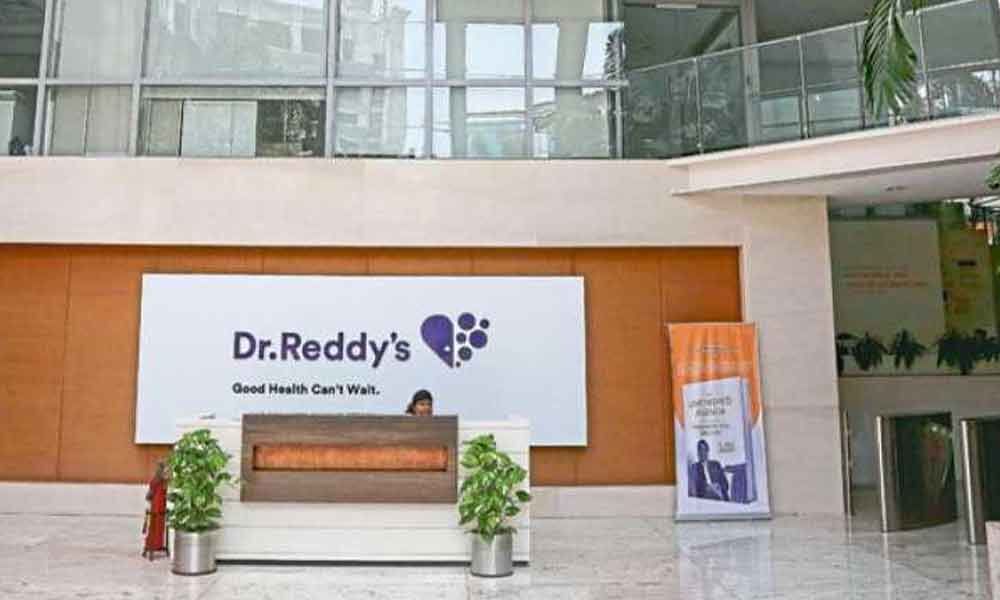Dr Reddy's keen on increasing CSR spend

Initiates several CSR programmes in skill development, education and health
What kind of CSR activities Dr Reddy's Labs is taking up?
In 2014, the Central government brought in legislation to mandate the companies to spend two per cent of their net profit on corporate social responsibility (CSR) activities. But Dr Reddy's started CSR activities much before that. In 1996 itself, Dr K Anji Reddy, founder of Dr Reddy's Laboratories, felt the need for giving back to the society.
Since then, the concept of giving back to the society has become an integral part of Dr Reddy's. He established Dr Reddy's Foundation (DRF) to carry out CSR activities.
Initially, our founder launched livelihood programmes followed by initiatives in education, health and environment.
We have been working in these four areas. Dr Reddy's is spending much more on CSR than two per cent of net profit mandated by the law. The company, which spent over Rs 28 crore last year, is keen on increasing the CSR spend.
What does Dr Reddy's Foundation do?
Our foundation takes care of livelihood programmes and education. We also take up large number of activities to protect environment. In education space, we adopted 129 schools across Andhra Pradesh and Telangana under our School Improvement Programme (SIP).
Through this initiative started in 2013, we cover three districts in Telangana and five in AP. In Telangana, we adopted 11 schools in Mulcair district, 12 in Sanga Reddy, 6 in Nalgonda, 21 in Visakhapatnam, 20 in Vizianagaram, 19 in Srikakulam and 20 in Guntur and 20 in Krishna district.
So far, 59,500 students, including over 31,500 girls, benefitted from this program me. Some government schools lack basic infrastructure, including toilets. In some cases, there are no separate toilets for girls.
There is also a shortage of study material. These are the areas where we focus on and improve the conditions in the schools that we adopted. We also appointed vidya volunteers wherever there is a shortage of teaching staff.
We provide informative study material to the 10th students in these schools so that they can score better marks in annual exams. Our foundation also arranges extra class in key subjects like mathematics, science and English.
Pass rate went up in these schools from less than 60 to 98-100 per cent after we took them into our fold.
Do you have any plans to adopt more schools?
We also launched school health programme to improve health conditions among students. We have well-equipped vehicles and staff. They visit every school and conduct medical tests.
If any ailment is found, such students will be taken to hospitals and get treated. Sarva Shiksha Abhiyan of AP approached us to start our programme in 100 more schools.
We will do that this year, thus taking the number of schools in our fold to 229 and student strength to nearly 2 lakh.
One of our key observations is that in urban areas, poor people send their girl children to government schools while boys are educated in private schools. Furthermore, girls stop education after 10th class.
To encourage talented girls and boys to go to college, we launched a scholarship programme called Prothsaham. Last year, we distributed scholarships to 600 students.
Dr Reddy's is a pharmaceutical major. What is it doing in the healthcare space?
In the healthcare area, we have community health intervention programme (CHIP). The programme caters to basic health requirements of the large population living in 145 villages located in the three districts of Nalgonda, Vizianagaram and Srikakulam.
We are implementing this in one mandal in each of the three districts. Two teams of medical staff work in each mandal. Each team is equipped with an ambulance. They visit each village on a fixed day, conduct health check-ups and distribute medicines.
If required, they admit people in nearby hospitals for further treatment. These teams also monitor pregnant women in these villages from the day one of pregnancy and provide medicines.
Our foundation is thus providing healthcare services to 1.25 lakh people in these villages. Nice Foundation is executing this programme on our behalf.
We will soon expand this programme to another mandal in Srikakulam district. That way, we will provide these services to 3 lakh people.
Dr Reddy's is also into skill development. How this CSR activity is going on now?
Our key focus area is livelihood programme under which we take up skill development initiatives. Foremost among them is our programme to empower differently-abled people with skills. DRF has 60 centres across the country.
The foundation picks up disabled people through these centres, trains them and provides employment to them by roping in various corporates. We are scaling up this programme now to train at least 3,000 people every year.
We also have MITRA programme which helps farmers in adopting new farming technologies. MITRA stands for Marking Integrated Transformation for Resourceful Agriculture. We implemented this programme in Srikakulam in AP and Miryalaguda in Telangana.
We also have self-managed teams (SMT) initiative under which unemployed youth with intermediate qualification are trained.
They are offered jobs in Dr Reddy's Labs. At the same time, the company supports them in pursuing their graduation. We hired 2,252 people through this initiative.




